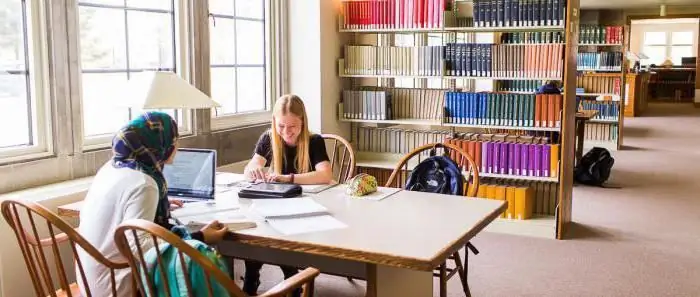The concept of orthoepy is known to everyone from school. What is this branch of science? What does orthoepy study? These and other questions will be answered below.
The concept of orthoepy
The word "orthoepy" has Greek roots and means "the ability to speak correctly". However, not everyone realizes that the term has a double meaning. The first - as a set of language norms, the second - associated with one of the sections of linguistics, the purpose of which is to study the rules of oral speech.
The full scope of the concept of "orthoepy" has not been established so far. Many linguists define the presented concept too narrowly, and therefore confusion may arise in expert circles. As a rule, norms and definitions of oral speech, grammatical forms and rules can be embedded in the term. The norms of orthoepy establish, first of all, the correct pronunciation of certain words and the placement of stresses in words.
Sections of orthoepy
Veryit is important to note that orthoepy is a section of phonetics - one of the departments of linguistics aimed at studying the sound construction of a language. At the same time, orthoepy covers almost the entire phonetic system of the language.

The subject of orthoepy are the norms of pronunciation of words and phrases. What is a "norm"? All experts and specialists in the field of linguistics agree that the only correct option is called the norm of the language, which completely coincides with the main laws of the Russian pronunciation system.
The following sections of orthoepy as a science can be distinguished:
- pronunciation of words borrowed from other languages;
- features of pronunciation styles;
- features of the pronunciation of certain forms of grammar;
- pronunciation of vowels or consonants in accordance with the norms.
A competent combination of all the presented sections just forms the concept of orthoepy.
Orthoepic norms
Orthoepic norms, or, as they are also called, speech norms, form the entire modern literary language and are necessary just to serve a literate, classical Russian language. An educated and cultured person always uses literary norms in his speech. Thanks to certain rules for the pronunciation of certain sounds, high-quality communication between people is established.

It is also worth noting that along with orthoepic norms there are grammatical normsand spelling. If people pronounce certain words differently, we would hardly be able to understand each other or transmit any important information. To analyze the speech of the interlocutor, to understand oral messages, one cannot do without orthoepic norms.
Of course, over time, people are increasingly deviating from the established rules of pronunciation. Only literate people with a really good education try not to deviate from orthoepic norms.
Goals, tasks and meaning of orthoepy
What does orthoepy study? The answer has already been provided above - the correct pronunciation of sounds and competent placement of stress. In principle, the same can be attributed to the main goal of the section of linguistics under consideration. Very often we hear the wrong pronunciation of words. For example, instead of the word "corridor" many people say "kolidor", instead of "stool" - "tubaret", etc. The tasks of orthoepic science include teaching the classical, literate pronunciation of words.

The sin of mispronunciation of words is mainly the elderly or villagers. It would seem, what could be the problem here? Unfortunately, the younger generation living in such families often adopts the manner of incorrect pronunciation of words. But wrong, distorted speech has never been in vogue. This is where the study of orthoepy in schools becomes necessary. Students acquire knowledge about the literary language, which today is practically indispensable anywhere: neither in politics, nor in business, nor in any otherlabor direction.
The value of orthoepy is thus incredibly great: this branch of science corrects the dialect and helps develop a competent, classical Russian language.
Styles of orthoepy
Having de alt with the question of why you need to study orthoepy, it is worth moving on to no less important problems. They concern the stylization of the considered section of linguistics.

What about the so-called speech styles? Orthoepy is a very extensive science, constantly adapting to existing realities. She easily accepts the appearance of neologisms as a given, because there simply cannot be any rigid framework or dogmas here. That is why many experts try to be guided by a special classification, according to which orthoepic norms are divided into two main styles:
- colloquial speech. If it is implemented in compliance with all necessary rules, then its use is not prohibited, and even quite justified;
- scientific speech. It is a very strict language, forbidding the use of many colloquial expressions. It is strictly verified, and its main feature is the clarity of pronunciation.
Many specialists in the field of linguistics distinguish some other groups of styles.
Orthoepic rules
It is also worth mentioning some rules, without which the orthoepic section of science simply would not exist. In order to answer questions about what orthoepy studies, with which sections of the language it is associated, it is necessary to pay attention to a number ofspecial rules.
All literary orthoepic norms are divided into two main types:
- rules for pronunciation of consonants or vowels ("com[p]yuter", "[t'e]rmin", etc.);
- stress rule (“call”, “oblige”, etc.).

What does orthoepy study, what are its features? For any orthoepic norm, the following features are characteristic:
- variability;
- sustainability;
- compulsory;
- compliance with language traditions.
Very important to note, the rules of pronunciation are established in the course of centuries of practice. They must comply with the traditions of the classical Russian language. Orthoepic norms are not invented by linguists. These scientists are more likely to control them.
Pronunciation of consonants
Having de alt with what orthoepy studies, as well as with what this science is generally needed for, it is worth finally paying attention to something more specific. What can be said about the pronunciation of consonants in the orthoepic section of linguistics? For example, here are a few basic rules:
- in Russian, there has long been a tendency for the sounds [ch] and [sn] to converge: of course, boring, on purpose, etc;
- pronunciation of solid [zh] instead of [zzh] - I drive, squeal, splash, etc.;
- sound [w] is often used in some words with the combination [th]: what, to etc.

It is the rules that are presented in the best wayillustrate the answer to the question of why orthoepy is needed. At the same time, many norms imply other rules for setting consonants. What about vowel sounds?
Pronunciation of vowels
All norms in orthoepy are built, first of all, on the basis of phonetic patterns. In the case of vowel sounds, it is worth highlighting, for example, the rules for pronouncing [o] or [e] after soft consonants (we are talking about the unjustified pronunciation of the letter Y: ice, maneuvers, guardianship, settled, etc.), as well as difficulty choosing a vowel after hard sibilants.
Thus, the question of why you need to study orthoepy immediately disappears after illustrating the basic rules and examples of the pronunciation of certain words.






